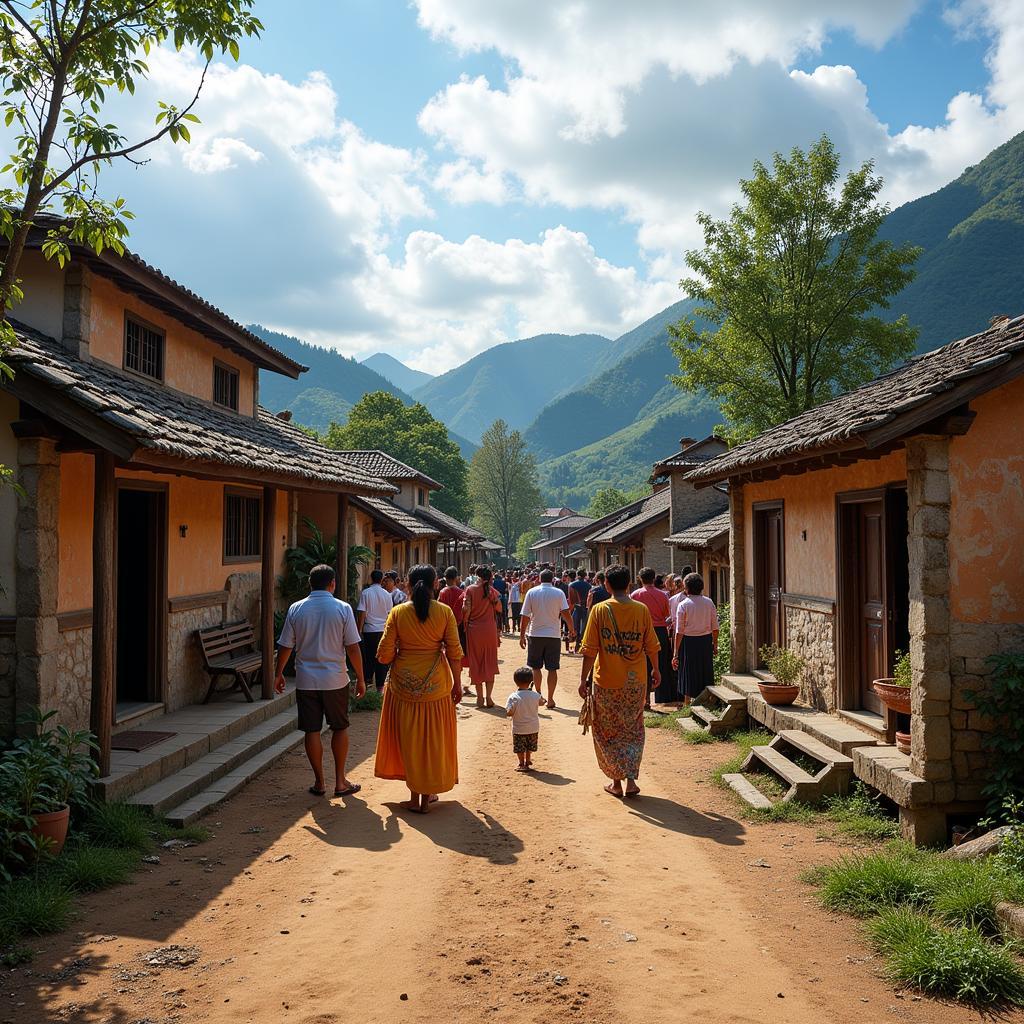Tourism and its effects on local cultures has been a recurring theme in IELTS Writing Task 2, appearing approximately 2-3 times annually over the past five years. This topic intersects with several other common themes like the effects of globalization on cultural identity and traditional values, making it particularly relevant for test-takers.

Task Analysis
Some people believe that tourism has a negative impact on the cultural identity of small communities, while others think it helps preserve local traditions. Discuss both views and give your own opinion.
This question requires candidates to:
- Examine both positive and negative effects of tourism on local cultural identity
- Present balanced arguments for both perspectives
- Provide a clear personal stance supported by evidence
- Relate to how does global tourism impact local economies
Sample Essay 1 (Band 8.0)
Tourism’s influence on small communities’ cultural identity is a complex matter that warrants careful consideration. While some argue that it erodes traditional values, others maintain that it actually helps sustain local customs and traditions.
Those who view tourism negatively often point to the commercialization of local cultures. When traditional ceremonies and customs become mere tourist attractions, they risk losing their authentic meaning and spiritual significance. For instance, in many Southeast Asian communities, sacred rituals are now performed primarily for tourists’ entertainment, potentially diminishing their cultural value. Moreover, young people in these communities may abandon traditional practices in favor of more modernized, tourist-oriented activities.
However, tourism can also serve as a powerful tool for cultural preservation. The economic benefits generated by cultural tourism often provide the financial means necessary to maintain historical sites and continue traditional practices. In Bhutan, for example, the government uses tourism revenue to fund the restoration of ancient monasteries and support traditional arts. Furthermore, local pride in cultural heritage often strengthens when outsiders show genuine interest in learning about and experiencing local traditions.
In my opinion, while the effects of cultural globalization on national identities through tourism present certain challenges, the benefits generally outweigh the drawbacks when properly managed. The key lies in implementing sustainable tourism practices that respect local customs while allowing communities to benefit economically from sharing their culture.
Sample Essay 2 (Band 6.5)
The impact of tourism on small communities’ cultural identity is a topic that many people have different opinions about. This essay will discuss both the positive and negative effects of tourism on local cultures.
On the negative side, tourism can damage local traditions. When many tourists visit small communities, local people sometimes change their way of life to make money from tourists. For example, traditional festivals become more like shows for tourists than real cultural events. Young people might also forget their traditional culture because they want to copy tourists’ modern lifestyle.
However, tourism can also help protect local culture. When tourists come to see traditional things, local people can earn money from showing their culture. This means they can continue doing traditional activities and teach them to younger people. Also, when tourists are interested in local culture, local people feel more proud of their traditions.
I think tourism has both good and bad effects on cultural identity, but the good effects are stronger if tourism is managed well. Communities should try to find a balance between making money from tourism and keeping their traditions real and meaningful.
Key Vocabulary
- cultural identity (n) /ˈkʌltʃərəl aɪˈdentɪti/ – the characteristics that define a particular group’s culture
- commercialization (n) /kəˌmɜːʃəlaɪˈzeɪʃən/ – the process of making something available for sale
- indigenous (adj) /ɪnˈdɪdʒɪnəs/ – naturally existing in a place or country rather than arriving from another place
- authenticity (n) /ˌɔːθenˈtɪsɪti/ – the quality of being genuine or real
- preservation (n) /ˌprezəˈveɪʃən/ – the act of maintaining something in its original state
- heritage (n) /ˈherɪtɪdʒ/ – the traditional beliefs, values, customs of a society
Practice Suggestions
For additional practice, try writing essays on these related topics:
- The role of technology in preserving traditional cultures
- Mass tourism’s impact on historical landmarks
- Balancing modernization with cultural preservation
Share your practice essays in the comments section for feedback and discussion with fellow learners. Remember to focus on clear structure, relevant examples, and appropriate vocabulary usage.